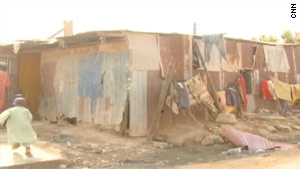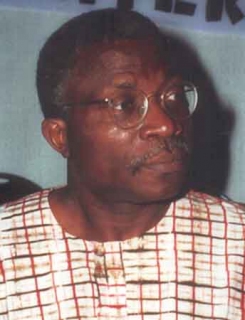April 25 (Reuters) - Nigeria will hold elections to select governors for the majority of its 36 states this week, after a presidential vote nine days ago sparked rioting in the north in which hundreds of people are feared to have been killed.
Following are some of the regional races which will be closely watched.
NORTH
-- Kaduna state: more than 500 people were killed in post election violence last week in the southern part of the state, according to Nigeria's Civil Rights Congress.
The governorship vote has been delayed by two days to allow tensions to ease and for security personnel to prepare.
Youths launched protests in northern towns and cities after President Goodluck Jonathan, a Christian from the south, was declared the victor of an April 16 election, defeating former military ruler and northern Muslim Muhammadu Buhari.
Jonathan's ruling People's Democratic Party (PDP) have put forward incumbent governor Patrick Yakowa for a second term but he will face strong opposition from Buhari's party, Congress for Progressive Change (CPC), whose hopeful is Haruna Sa'ad Kajuru.
The PDP will be keen to hold on to its governorship control in Kaduna to prove it still has a strong northern following.
-- Bauchi state: another state where violence was fierce following Jonathan's victory. The race between the incumbent PDP and opposition CPC candidates is again expected to be close.
The vote will also be postponed by two days and a heavy security presence is expected but many parts of the state are isolated rural areas where trouble can quickly flare up.
-- Kano state: an opposition-controlled state where Jonathan performed well in the presidential race despite one of his opponents, Ibrahim Shekarau, having just served two terms as governor in the home of northern Nigeria's most populous city.
CPC replaced its original controversial candidate, the son of late dictator Sani Abacha, removing one potential flashpoint.
-- Borno state: radical Islamic sect Boko Haram was suspected to be behind bomb attacks in the state capital that killed at least two people on Sunday. [ID:nLDE73O044]
Boko Haram launched an uprising in 2009 in which hundreds of people were killed and the group's attacks have become increasingly political. Gunmen in January assassinated Modu Fannami Gubio, the opposition All Nigeria People's Party (ANPP) candidate who was favourite to win in April, and pledged further attacks on the ANPP which controls the state. [ID:nLDE72S29K]
-- Other northern states like Katsina, Buhari's home state, where PDP risk losing their control, will be carefully watched.
NIGER DELTA
-- Bayelsa, Jonathan's home state: A bitter governorship battle between incumbent PDP governor Timipre Sylva, and ex-presidential adviser Timi Alaibe has been delayed until next year after an appeal court judgment upheld a ruling which said Sylva had not yet served his four year term.
But elections for the state house of assembly will go ahead and are likely to be fierce races. Some federal parliamentary seats will also be contested after the original vote on April 9 was marred by ballot box snatching in some areas.
-- Delta state: PDP governor Emmanuel Uduaghan was in January declared winner of a re-run election, held amid tight security, after a court last year overturned his 2007 victory.
His main opponent, Great Ogboru, questioned the conduct of the re-run, and his supporters alleged rigging, setting the stage for a fierce showdown this week.
-- Akwa Ibom state: A state riddled with tension where the candidate for opposition Action Congress of Nigeria (ACN) James Akpanudoedehe was charged with treason for alleged involvement in fatal rioting between rival supporters last month.
SOUTHWEST
-- Ogun state: A controversial split within the PDP saw incumbent governor Gbenga Daniel defect to People's Party of Nigeria (PPN) after former president and PDP stalwart Olusegun Obasanjo blocked his attempt to run for a Senate seat.
Obasanjo and Daniel are now backing opposing governorship candidates for PDP and PPN, which could split the vote and open the door for the ACN party, which holds several other states in the southwest including the commercial capital Lagos.
-- Oyo state: This will be a key battle ground with PDP governor Christopher Alao-Akala facing strong opposition in a state which has already seen political violence, including the murder of a union leader during a campaign rally.
MIDDLE BELT
-- Plateau state: More than 200 people have been killed in and around the state capital Jos since December in sectarian clashes between indigenous groups, mostly Christian, and settlers from the mostly Muslim north.
The tension is rooted in fierce competition for local political power and control of fertile farmlands, resentment which local government policies have done little to calm. Campaign rallies could trigger further violence.
(Reporting by Joe Brock; editing by Nick Tattersall)
af.reuters.com/article/nigeriaNews/idAFLDE73O02Z20110425?sp=true
Following are some of the regional races which will be closely watched.
NORTH
-- Kaduna state: more than 500 people were killed in post election violence last week in the southern part of the state, according to Nigeria's Civil Rights Congress.
The governorship vote has been delayed by two days to allow tensions to ease and for security personnel to prepare.
Youths launched protests in northern towns and cities after President Goodluck Jonathan, a Christian from the south, was declared the victor of an April 16 election, defeating former military ruler and northern Muslim Muhammadu Buhari.
Jonathan's ruling People's Democratic Party (PDP) have put forward incumbent governor Patrick Yakowa for a second term but he will face strong opposition from Buhari's party, Congress for Progressive Change (CPC), whose hopeful is Haruna Sa'ad Kajuru.
The PDP will be keen to hold on to its governorship control in Kaduna to prove it still has a strong northern following.
-- Bauchi state: another state where violence was fierce following Jonathan's victory. The race between the incumbent PDP and opposition CPC candidates is again expected to be close.
The vote will also be postponed by two days and a heavy security presence is expected but many parts of the state are isolated rural areas where trouble can quickly flare up.
-- Kano state: an opposition-controlled state where Jonathan performed well in the presidential race despite one of his opponents, Ibrahim Shekarau, having just served two terms as governor in the home of northern Nigeria's most populous city.
CPC replaced its original controversial candidate, the son of late dictator Sani Abacha, removing one potential flashpoint.
-- Borno state: radical Islamic sect Boko Haram was suspected to be behind bomb attacks in the state capital that killed at least two people on Sunday. [ID:nLDE73O044]
Boko Haram launched an uprising in 2009 in which hundreds of people were killed and the group's attacks have become increasingly political. Gunmen in January assassinated Modu Fannami Gubio, the opposition All Nigeria People's Party (ANPP) candidate who was favourite to win in April, and pledged further attacks on the ANPP which controls the state. [ID:nLDE72S29K]
-- Other northern states like Katsina, Buhari's home state, where PDP risk losing their control, will be carefully watched.
NIGER DELTA
-- Bayelsa, Jonathan's home state: A bitter governorship battle between incumbent PDP governor Timipre Sylva, and ex-presidential adviser Timi Alaibe has been delayed until next year after an appeal court judgment upheld a ruling which said Sylva had not yet served his four year term.
But elections for the state house of assembly will go ahead and are likely to be fierce races. Some federal parliamentary seats will also be contested after the original vote on April 9 was marred by ballot box snatching in some areas.
-- Delta state: PDP governor Emmanuel Uduaghan was in January declared winner of a re-run election, held amid tight security, after a court last year overturned his 2007 victory.
His main opponent, Great Ogboru, questioned the conduct of the re-run, and his supporters alleged rigging, setting the stage for a fierce showdown this week.
-- Akwa Ibom state: A state riddled with tension where the candidate for opposition Action Congress of Nigeria (ACN) James Akpanudoedehe was charged with treason for alleged involvement in fatal rioting between rival supporters last month.
SOUTHWEST
-- Ogun state: A controversial split within the PDP saw incumbent governor Gbenga Daniel defect to People's Party of Nigeria (PPN) after former president and PDP stalwart Olusegun Obasanjo blocked his attempt to run for a Senate seat.
Obasanjo and Daniel are now backing opposing governorship candidates for PDP and PPN, which could split the vote and open the door for the ACN party, which holds several other states in the southwest including the commercial capital Lagos.
-- Oyo state: This will be a key battle ground with PDP governor Christopher Alao-Akala facing strong opposition in a state which has already seen political violence, including the murder of a union leader during a campaign rally.
MIDDLE BELT
-- Plateau state: More than 200 people have been killed in and around the state capital Jos since December in sectarian clashes between indigenous groups, mostly Christian, and settlers from the mostly Muslim north.
The tension is rooted in fierce competition for local political power and control of fertile farmlands, resentment which local government policies have done little to calm. Campaign rallies could trigger further violence.
(Reporting by Joe Brock; editing by Nick Tattersall)
af.reuters.com/article/nigeriaNews/idAFLDE73O02Z20110425?sp=true






